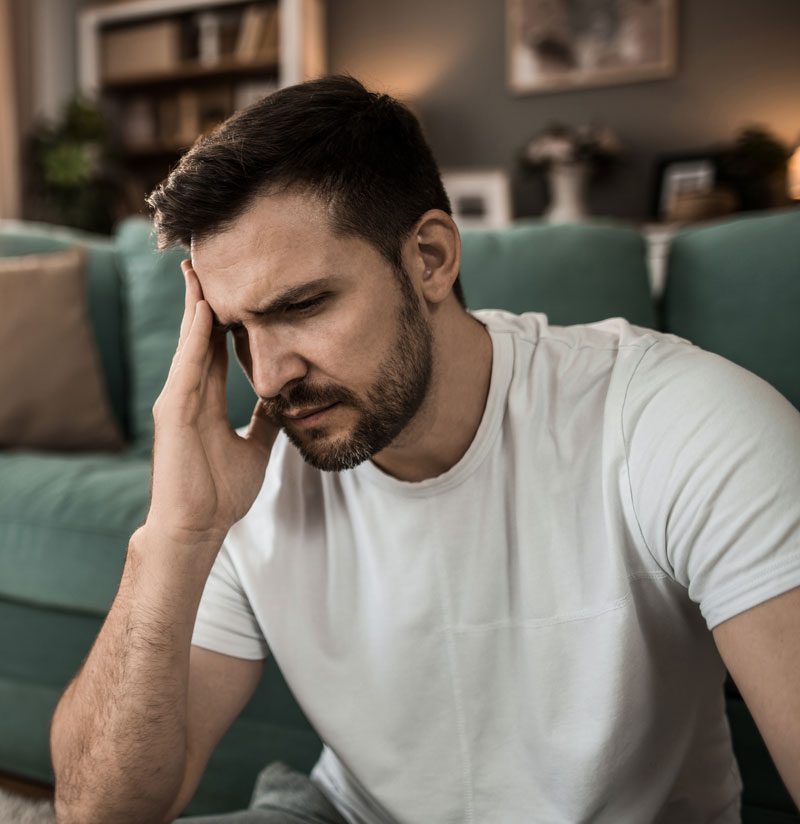Schizophrenia Treatment in San Antonio, Texas

Schizophrenia Treatment in San Antonio, Texas
Schizophrenia is a chronic and severe mental disorder that affects how a person thinks, feels, and behaves.
People with schizophrenia may seem like they have lost touch with reality, which can be distressing for them and their families. The condition is characterized by a range of symptoms, which can be divided into positive, negative, and cognitive categories.
Explore Schizophrenia & Treatment
Are you looking to take back your life?
(888) 235-3003
Treatment Paths
Our Programs
What is Schizophrenia?
Schizophrenia is a severe mental health disorder characterized by a profound disruption in an individual’s thoughts, emotions, and perceptions of reality. People with schizophrenia often struggle with distinguishing between what is real and what is not, leading to significant challenges in everyday life.
However, most people with schizophrenia will not experience symptoms year-round. Some people experience only one or two schizophrenic episodes in their lifetime, while others may experience multiple episodes. Episodes can last days, weeks, or (in rare cases) months.
What is an “episode”? Generally, schizophrenia manifests as psychotic episodes in which the person experiences some loss of contact with reality. Let’s take a closer look at the symptoms of a schizophrenic episode.

Symptoms of Schizophrenia
People with schizophrenia exhibit behaviors that are not generally seen in healthy individuals. They include:
- Hallucinations: Hearing or seeing things that aren’t there, most commonly hearing voices.
- Delusions: Strongly held false beliefs that are not based in reality. For example, believing that one has exceptional abilities or is being persecuted.
- Disorganized Thinking: Trouble organizing thoughts, which can make speech hard to follow or incoherent.
- Reduced Expression of Emotions: Reduced ability to express emotions or find pleasure in everyday life.
- Movement Disorders: This might manifest as agitated body movements or catatonia (a lack of movement or response).
- Reduced Speaking: Less frequent speech, even when interaction is necessary.
- Apathy: Lack of motivation to engage in activities or maintain social relationships.
- Poor Executive Functioning: Difficulty understanding information and using it to make decisions.
- Trouble Focusing or Paying Attention: Difficulty maintaining attention on tasks.
How is Schizophrenia Diagnosed?
There is no single test to determine if a person has schizophrenia. Instead, schizophrenia is typically diagnosed based on a comprehensive psychiatric evaluation, medical history, and the ruling out of other medical conditions through an MRI, blood tests, urine tests, a spinal tap, and an EEG (electroencephalogram).
Generally, a doctor makes a diagnosis of schizophrenia based on information they gather from personal and family history, the patient’s symptoms, and their behavior. For a diagnosis of schizophrenia, a person must have at least two of the symptoms listed above for at least one month, and those symptoms must impact the person’s ability to function at work or in relationships.

What Causes Schizophrenia?
The exact cause of schizophrenia is not fully understood, but, according to the Cleveland Clinic, experts point to three main causes:
- Chemical imbalances in the brain that affect cell-to-cell communication
- Prenatal brain development problems
- Loss of connections between different areas of the brain.
In addition, genetic and environmental factors, including stress, trauma, and substance use, can heighten the risk of a person developing schizophrenia if they are predisposed to the illness.
When someone has schizophrenia as well as a substance use disorder, they are considered to have a co-occurring disorder or dual diagnosis. Treatment for both disorders simultaneously yields the best results. Nearly 50% of people with schizophrenia also have a chemical dependence on drugs or alcohol, according to the National Institutes of Health.
How is Schizophrenia Treated?
While there is no cure for schizophrenia, it can be managed with a combination of treatments:
- Medications: Antipsychotic medications are the cornerstone of treatment, helping to control symptoms.
- Psychotherapy: Cognitive-behavioral therapy (CBT) can help manage symptoms and improve functioning.
- Supportive Therapies: These may include social skills training, occupational therapy, and supported employment.
- Family Education and Support: Involving family members in the treatment process can provide a supportive environment for the patient.

Help for Schizophrenia and Dual Diagnosis near San Antonio
Schizophrenia is a complex mental health disorder, but it is not something to fear. Early diagnosis and a comprehensive treatment approach can help individuals with schizophrenia lead fulfilling lives.
The course of schizophrenia varies widely among individuals. Some may experience severe and persistent symptoms, while others may have periods of improvement. Early diagnosis and continuous treatment can improve the long-term outlook for many people with schizophrenia.